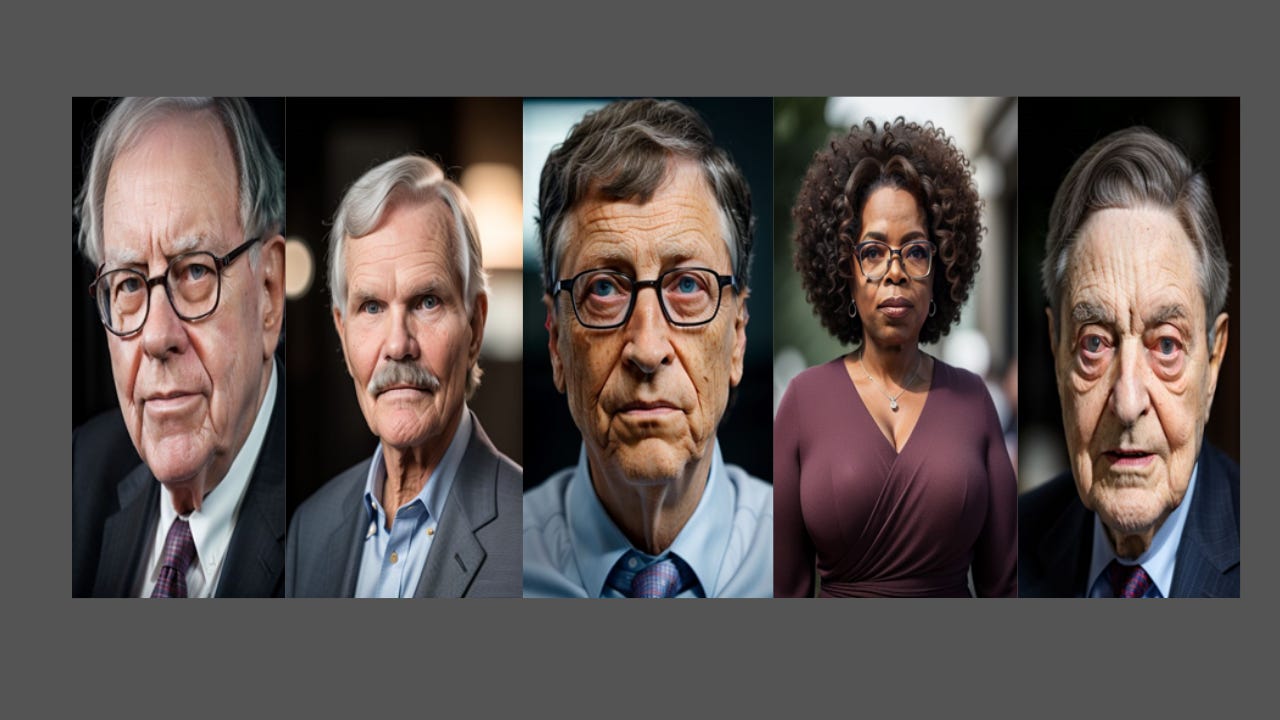On May 5, 2009, the Bill and Melinda Gates Foundation orchestrated a highly confidential and discreet gathering held in the President’s room at Rockefeller University in New York. This meeting brought together some of the globe's wealthiest individuals. Among the attendees were prominent figures such as George Soros, David Rockefeller Sr., Oprah Winfrey, Ted Turner, Warren Buffet, and Bill Gates, among others. Notably, none of these individuals have been democratically elected to govern any jurisdiction. However, they have associated themselves with controversial entities like The United Nations, The World Health Organization, The World Economic Forum, and The Club of Rome, positioning themselves as global leaders, supported by their amassed wealth, which has also faced scrutiny for its acquisition methods. It stands as the most exclusive organization globally, with no room for regular individuals to seek membership. There's no formal application process; one must only possess immense wealth. Referred to as The Good Club, it comprises a select group of billionaires.
The gathering of numerous influential figures in American society on short notice, meeting discreetly in the global media hub, raises questions about how they managed to coordinate their schedules. The purpose and final outcome of the billionaires' conference remain unknown. In their invitation letter, Gates, Buffett, and Rockefeller pointed out the worldwide recession and the pressing need for future planning. They expressed a desire to gather insights from a diverse group of key leaders in finance and philanthropy. The secretive meeting, shrouded in media silence, was initiated by Warren Buffett, CEO of Berkshire-Hathaway; Bill Gates, co-founder of Microsoft; and David Rockefeller Jr., chairman of Rockefeller Financial Services. For a duration of six hours, the gathered group of billionaires deliberated on the pressing global challenges. Each participant had an allotted time of 15 minutes to express their views. The discussions encompassed various subjects, including education, emergency aid, governmental restructuring, the anticipated severity of the economic downturn, and global health concerns like overpopulation and disease.
Examining the developments since this gathering prompts the query: what topics were deliberated upon, and what strategic initiatives were devised that have had a substantial impact on global affairs since then? The allowance for certain individuals to participate in confidential meetings, exclusive clubs, and organizations with significant sway over international policies and legislation across various domains solely on account of the wealth within their family trusts, personal bank accounts, and acquired stocks and portfolios raises concerns about their legitimacy as qualified representatives. The permission for engagement in potential crimes against humanity by these individuals prompts the question of why governmental and law enforcement bodies are not scrutinizing them through transparent and lawful processes. If the original intentions of the meeting were genuinely altruistic, the need for secrecy becomes questionable. It is imperative that the activities and participants of this meeting, spanning six hours, be subjected to thorough investigation, and these individuals should no longer be exempt from scrutiny. We are the 99!







"We are the 99" is utterly refreshing!